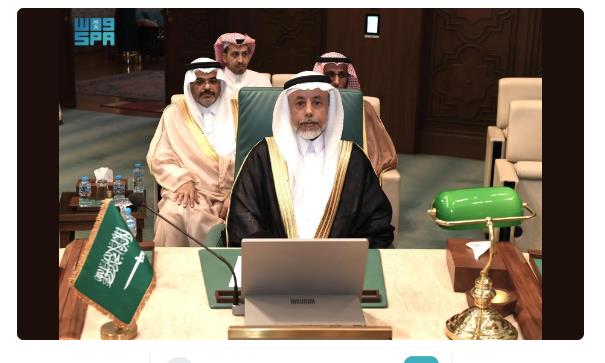
Saudi Arabia’s Energy Minister Prince Abdulaziz bin Salman last week announced that the GCC Interconnection Authority (GCCIA) would serve as a future platform for exporting electricity outside the region. While the minister was emphasizing the economic aspects of such an expansion, there are also fundamental security and strategic justifications.
Historically, energy generation in the Gulf has relied on the burning of oil but, in the future, the minister said that it will use a more diversified mix of gas and renewable energies, including solar and wind. During his dedication of a GCCIA laboratory complex in Dammam, he also praised its contribution to Gulf Cooperation Council (GCC) energy security and the promotion of energy efficiency.
While the GCCIA was setup in 2001, primarily as an economic enterprise, it has served important strategic objectives too. When its actual operations commenced in full in 2010, GCCIA created a common market for electricity generation among the GCC member states, reducing costs and improving efficiency by trading excess supply and meeting shortages due to excess demand or technical difficulties. In so doing, it helped in meeting regional energy security needs. Now it is working to extend its grid beyond GCC borders.
In January 2019, the US convened a meeting on regional energy and economic cooperation between the potential members of a Middle East Strategic Alliance. A key US proposal at the time called for the creation of a common energy market through extending the GCCIA grid to neighboring countries.
It turned out that the GCCIA had already started exploring the possibility of extending its geographical coverage beyond the Gulf. The organization was encouraged by the savings it was able to provide for GCC member states through connecting their electricity generation infrastructures. In 2019, those savings amounted to about $264 million, according to GCCIA calculations. It hopes to increase those savings to $1 billion in the near future, when more efficiency measures are implemented. The lab complex that was dedicated last week was aimed at those efficiency improvements.
During the winter, the Saudi energy minister said that current excess electricity generation is estimated at about 70 gigawatts, which could be easily exported outside the region if the GCC grid were connected to outside networks.
Last year, at Baghdad’s request, the GCCIA completed studies to extend its network to southern Iraq. It is now working on the funding and technical details of the project, which is estimated to cost about $200 million, with the support of GCC member states and aid agencies.
The GCCIA hopes to complete the Iraq project connection during 2020, pending final approval, to fulfill southern Iraq’s electricity needs. Although Iraq has sought and still supports this project, its actual operation would depend on Iraq’s political, security, technical and financial circumstances. The project would have an initial capacity of 400 megawatts, with the possibility of expanding it to 2,000 megawatts.
Last November, the GCCIA also signed memorandums of understanding with both Egypt and Jordan to explore the possibility of extending the network to those two countries. In addition, the company is assessing extending the network to Asia, through cooperation with Pakistan and India, and other regions too.
Once the network is extended to those regions, the GCCIA could become part of a global common market for electricity, where countries with excess generation capacity could sell that spare production through the network. The savings would be tremendous, judging from the savings within the GCC.
While those savings would be welcome in a time of economic slowdown and shrinking revenues, providing energy security for GCC neighbors also serves an important strategic objective, which is why the US expressed interest in promoting these efforts. Energy shortages are frequently behind political instability, because energy deficits can impede economic development and cause great hardships for growing populations in the region. Limited or expensive energy supplies have made it difficult for countries to grow their economies or safeguard their political stability.
Another rationale behind creating a common market for energy is helping countries to meet their climate change obligations. The economies of scale of a large common market would make it viable to use renewable energies, such as solar and wind.
The economies of scale of a large common market would make it viable to use renewable energies.
Abdel Aziz Aluwaisheg
Despite these sound economic and strategic justifications for creating a larger regional common market for electricity, progress in such projects has been slow. The GCC network has been up and running for a decade, but extending it beyond GCC territory faces formidable, albeit surmountable, challenges. While the US has expressed great interest in the whole idea, it has yet to translate that interest into tangible terms. Large international development institutions such as the World Bank and the International Finance Corporation need to step in with significant investment to help bring the ambition of a regional energy market into being. The US has promoted the idea of regional energy integration, but has stopped short of providing the necessary political leadership, in addition to the financial and security support that is needed to bring that idea to fruition.
Beyond economics, security and political factors also have to be taken into consideration. In unstable regions, there is a fundamental need for programs that combine stabilization assistance security and development aid, before large-scale electricity projects can be launched. For example, in Yemen or Somalia, it would be difficult to attract investors or find competent engineering companies to commit to such projects without also addressing the safety of workers and the security of equipment and infrastructure. This is another reason why US leadership is keenly required.
Abdel Aziz Aluwaisheg is the Gulf Cooperation Council’s assistant secretary-general for political affairs and negotiation, and a columnist for Arab News. The views expressed in this piece are personal and do not necessarily represent those of the GCC. Twitter: @abuhamad1
Disclaimer: Views expressed by writers in this section are their own and do not necessarily reflect Arab News" point-of-view












